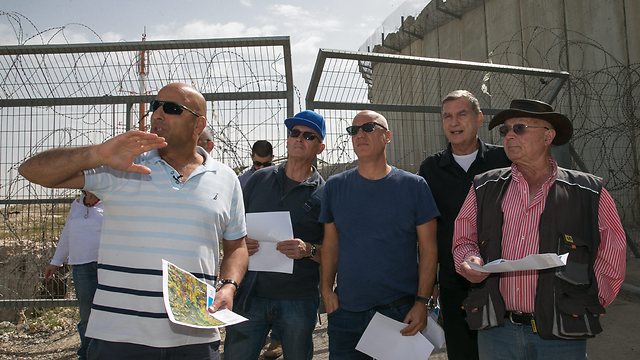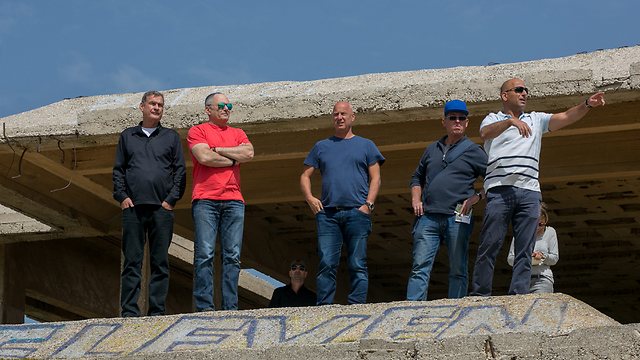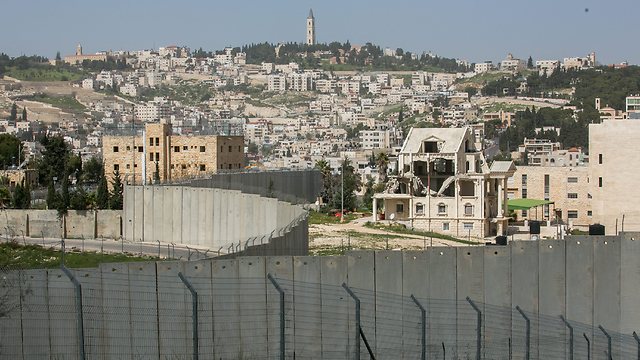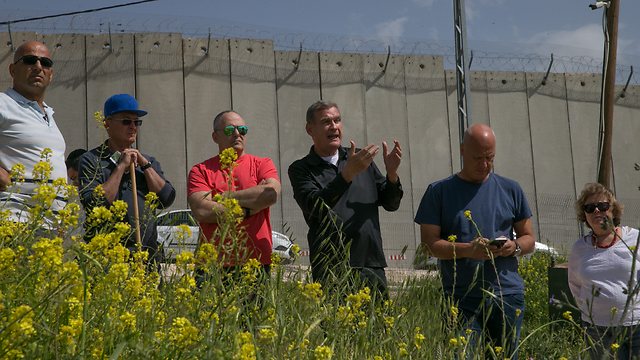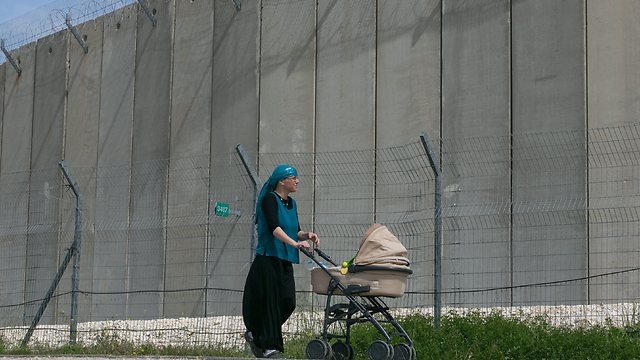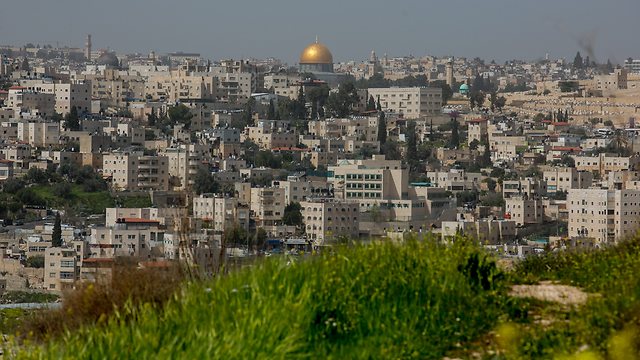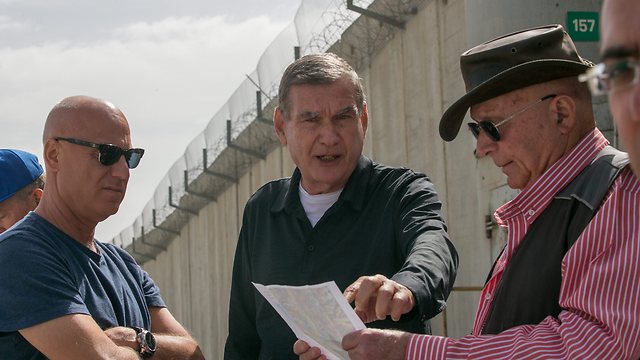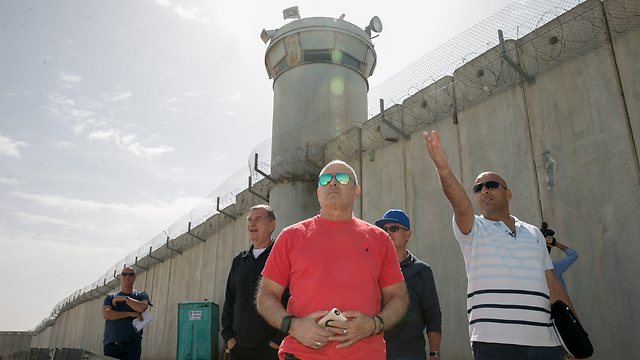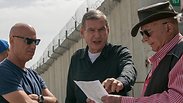

To divide or not to divide, that is the question
Haim Ramon and the Save Jewish Jerusalem Movement want to remove the surrounding Arab villages and neighborhoods from the capital's city limits, leaving 200,000 Palestinians out; but the plan provokes criticism both on the right, that says the proposal is dangerous, and the left, that define it as impractical.
Behind the Save Jewish Jerusalem Movement, along with Ramon, are retired senior police officers such as Arieh Amit, David Tzur and Alik Ron. Together they seek to present the citizens of Israel, and those living in Jerusalem in particular, a new vision of the capital: Palestinian neighborhoods and villages whose residents have Israeli IDs, along with all of the benefits of being Israeli citizens, but they are considered Palestinians.
The proposed plan: Most of the Palestinian Arab villages that were "annexed to Jerusalem in an erroneous and harmful decision in 1967" will be removed from the capital's territory and instead be given the same status as the other villages surrounding Jerusalem that are considered part of the West Bank; a security fence will be immediately erected between those Arab villages and the Jewish Jerusalem; the situation in East Jerusalem, the Old City and the Holy Basin, and the Jewish neighborhoods built after the Six-Day War will remain unchanged; thus, some 200,000 Palestinians will be out of the Jerusalem municipality's area, strengthening the Jewish nature of the city. Jews will then constitute 80 percent of the city's residents, while the Palestinians will be less than 20 percent. Currently, nearly 40 percent of Jerusalem's residents are Palestinians.
In addition, the residency status of the 200,000 Palestinians in the surrounding neighborhoods and villages will expire, saving Israel NIS 2-3 billion annually.
The end result: 532,000 Jews will be living within Jerusalem's new borders, making up 81 percent of its population, while only 123,000 Palestinians will remain in the city proper.
Ramon and the members of the movement claim that the solution they're offering is not political in nature, since it is also in line with the right wing’s interests - to disengage from the Palestinians and establish a clear Jewish majority in Jerusalem.
This week we joined them for a ride to understand what is behind their initiative, and what the city's residents think about it. Just don't call it a division of Jerusalem.
Bipartisan resistance
In light of the attacks committed by Palestinians from East Jerusalem, we chose to explore those places that the members of the Save Jewish Jerusalem Movement want to remove from Jerusalem's city limits - like Shuafat, At-Tur and Jabel Mukaber. Our tour guide is one of the experts on the issue of Jerusalem, who supports the movement's agenda: Col. (res.) Shaul Arieli.
The day before our tour, a terrorist from East Jerusalem committed a terror attack in the city. "A terrorist with an Israel ID from Kafr 'Aqab, who naturally belongs to the West Bank, but was annexed to Jerusalem," says Arieli. “Sixty percent of the attacks in Jerusalem are committed by residents of these villages."
Ramon argues that Prime Minister Netanyahu decided to stop building the separation fence in Jerusalem because it is in practice dividing the city. "In 2009, Netanyahu stopped building the fence, and this failure derives of ideological reasons," he says. "At the moment, there is no continuous barrier between Jerusalem and the Palestinian villages that were annexed to Jerusalem, and were never part of Jerusalem. Netanyahu is sacrificing the lives of Israeli citizens to create the impression that there is a de facto annexation of all of the West Bank."
Are the Jerusalemites, and the citizens of Israel in general, in favor of the removal of approximately 200,000 Palestinian residents of East Jerusalem from the city limits?
Ramon and his colleagues are confident that this is not an issue that divides people to right wing and left wing. And, at least according to the reactions to the proposal, that is an accurate assessment. There are opponents to this plan both on the left and the right.
The right wing's main argument is that it serves as a statement on the practical division of the city. The movement will say that in practice, Jerusalem has been divided for a long time, and that this is really just a necessary step that aligns with reality.
On the left, most of the arguments so far touched upon two main factors: the first - there is no advantage to a unilateral move, as the past has already shown. The second - the plan is completely impractical. A significant portion of those 200,000 people live and work in Jerusalem. Taking away their livelihood and hope for the future, all in one day, will probably not turn them into partners for peace.
We are joined on our tour of At-Tur by several Border Policemen. As we were surveying the neighborhoods, one of them asks about the movement's activities. "I'm from Jerusalem, a Beitar fan and a right-winger," he says. "But after a few months of settlement security I think it is right to break away from most of the Palestinian residents. Sure, why not?”
A Democratic threat
Retired police officer Arieh Amit, the former commander of the Jerusalem District Police, argues that the myth of a "united Jerusalem" is one of the biggest lies Israel's leaders have been telling us for years.
"The leadership in Israel doesn’t usually look to the future because of a narrow-minded and self-serving mindset, so we have no choice and we need to deal with this issue of Jerusalem," he says. "Let it be clear: the villages that should be removed from the city limits are villages that were never part of Jerusalem until 1967, when a cocky, arrogant committee was established that was blinded by the historic victory and found explanations to why we should expand Jerusalem and add these villages to the city. These villages are incubators for hatred, terror attacks and generations of people who keep this hatred alive, and only those who visit these places realize how dangerous they are to our future."
You'll be accused of dividing Jerusalem.
"This is of course complete and utter nonsense. One of the biggest problems of those who support a united Jerusalem is that they speak in slogans without understanding the reality in this city. If you drop one of them off at the Shuafat refugee camp and tell them to return home on their own, they won’t know where they are or how to get out of there. Show me one person who knows where Jabel Mukaber's central mosque is. These villages are not a part of Jerusalem at all. There's no division of Jerusalem, since these places were never part of Jerusalem. These places breed suicide bombers and hatred, and there is no reason we shouldn't put wall between us."
Amit says he is afraid that one day, the Palestinians in East Jerusalem will rise up and decide to put down the knife and take democratic action against the State of Israel. "In a few years, the Palestinian leadership could tell East Jerusalem residents that instead of going out with knives to stab Jews, they should go with a ballot to the polls and vote for the mayor of Jerusalem. And before we know it, we will have a Palestinian mayor in the best case scenario, or a Hamas mayor in the worst case scenario," he says. "And anyone who doesn't understand this is denying reality. Not many years from now, Jerusalem will no longer be Jewish."
Is this a political movement?
"Absolutely not. This movement is free of any political agenda. If I thought it was connected, even indirectly, to any party or political agenda - I wouldn't be there. Our goal is to save the future of Jerusalem."














